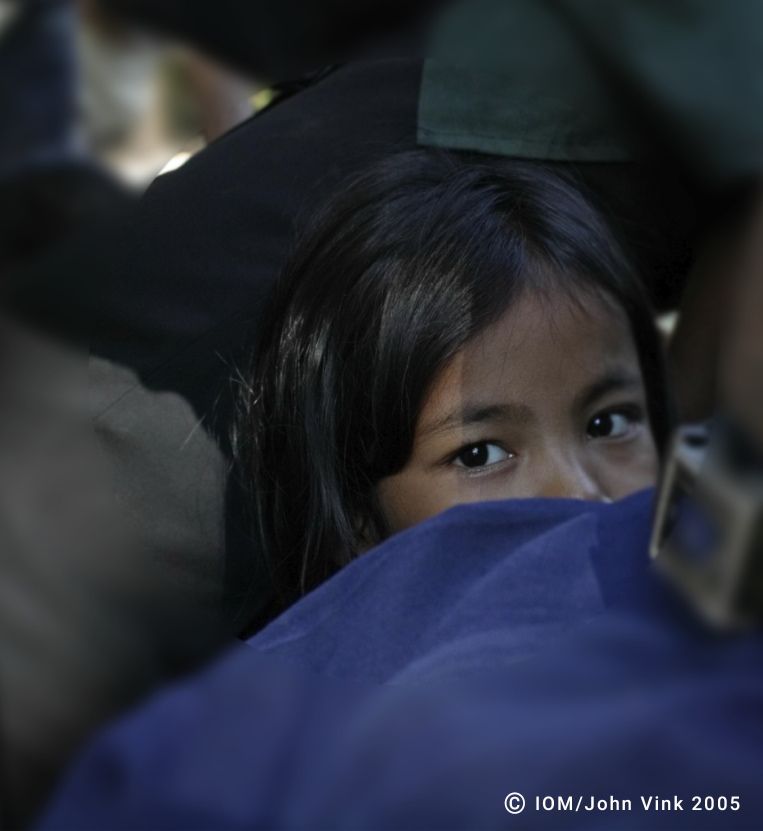ABOUT THE REGIONAL
STRATEGIC ROADMAP
This Regional Strategic Roadmap is a comprehensive tool for Bali Process member States, policy makers and practitioners to review, develop or strengthen national counter-trafficking policies through prevention, prosecution and protection (3Ps) by aligning international legal standards, human rights principles and effective practices from across the Bali Process membership. The Regional Strategic Roadmap also serves as a resource center for domestic laws and policies that address trafficking in persons which have been instituted by Bali Process member States. The Regional Strategic Roadmap compiles available materials, references, publications, and training available in the region. Importantly, the Regional Strategic Roadmap is a platform to share knowledge and effective practices identified among Bali Process members, and promote regional cooperation.
THE CRIME OF TRAFFICKING IN PERSONS IN ASIA AND THE PACIFIC
3PS APPROACH
POLICY DEVELOPMENT THROUGH SELF-EVALUATION AND PEER-LEARNING
Trafficking in persons is a complex and dynamic crime which requires comprehensive legal and social policy approaches to prevent the crime, punish perpetrators and protect victims. It is widely recognized that trafficking in persons is a crime against individuals which harms and violates their basic human rights. Trafficking in persons also undermines States national security, economy and social norms. National responses need to be supported by close cooperation among States and partners. States, international organizations and other actors are adopting multi-layered approaches to address trafficking in persons. To date 27 Bali Process States have ratified the Protocol to Prevent, Suppress and Punish Trafficking in Persons, especially Women and Children (the Trafficking in Persons Protocol) and 41 Bali Process member States have domestic legal provisions against trafficking in persons. Many of the Bali Process member States have also developed National Action Plans that outline policy measures to address trafficking in persons.

The Bali Process members commitment to combat trafficking in persons in the Asia-Pacific region was reinforced by the 2016 Bali Process Declaration. Building upon the desire to engage in activities that strengthen national and regional responses to trafficking in persons, the Regional Support Office to the Bali Process (the RSO) has developed a Regional Strategic Roadmap that informs members of options to strengthen their approaches to trafficking.
This Regional Strategic Roadmap is a comprehensive tool for Bali Process member States, policy makers and practitioners to review, develop or strengthen national counter-trafficking policies through prevention, prosecution and protection (3Ps) by aligning international legal standards, human rights principles and effective practices from across the Bali Process membership.
The Regional Strategic Roadmap also serves as a resource center for domestic laws and policies that address trafficking in persons which have been instituted by Bali Process member States. The Regional Strategic Roadmap compiles available materials, references, publications, and training available in the region. Importantly, the Strategic Roadmap is a platform to share knowledge and effective practices identified among Bali Process members, and promote regional cooperation.
If your government agency would like to contribute and share your National Action Plans with other Bali Process member States, or promote other policy measures, including practices in implementing 3Ps
contact us here
If you are an NGO, member of civil society group or international organization that cooperates with Bali Process member States in implementing counter-trafficking projects and activities, and you would like to nominate that activity or practice to be shared, please do so through the Bali Process member States that you are partnered with.

The ‘3Ps’ approach derives from the Trafficking in Persons Protocol that focuses on three elements: prevention, prosecution, protection. The ‘3Ps’ approach is a fundamental framework used by governments around the world to combat human trafficking.
3Ps policy approach has the following aims:
Prevention: address the socio-economic vulnerabilities that drive trafficking while tackling the existing demand for exploitation of persons; create sustainable migration solutions; address existing social inequalities; eliminate all forms of discrimination against women, minorities and other marginalised groups; provide equal access to education and economic opportunities for all, including youth.
Protection: change the perception of who is a victim; provide required assistance and protection for victims while upholding their human rights; ensure their recovery and successful integration back to their communities and prevent re-trafficking.
Prosecution: implement effective laws that ensure successful prosecution of offenders anddeliver justice for victims; deter trafficking by increasing penalties for traffickers; disrupt trafficking activities through strong law enforcement cooperation domestically and regionally.
This operational ‘3Ps approach’ is underpinned by several guiding principles based on the legislative work of the United Nations such as: human rights-based approach, principle of non-discrimination, gender-sensitive approach and child-rights approach. Lastly, the need for policy to stand on evidence-based and inter-disciplinary approaches should be mentioned.
Apart from being a comprehensive resource center of the basic elements for a counter trafficking policy, the Regional Strategic Roadmap also proposes a number of tools for policy makers and other practitioners to systematically assess the current state of national counter trafficking policies, and to identify measures to enhance counter-trafficking efforts while setting attainable and sustainable targets.
To start your policy self-evaluation and goal setting:




